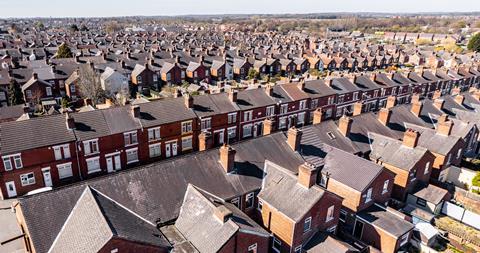Research estimates that social housing tenancies contribute over £70bn per year to the economy. This contribution could be even greater if 1.4 million social homes had not been lost to disposals, conversions, and the Right to Buy scheme.
The English economy lost out on £25.25bn in savings last year due to the 1.4 million social homes lost through Right to Buy, disposals and conversions since 1979, a new report by research consultancy Sonnet has found.

The figure is based on the average value brought by a social tenancy, which was estimated to be at least £18,051 in 2023/24.
The research, commissioned by Hyde and five other housing associations, revealed that overall, England’s 4.2 million social homes contribute at least £77.7bn a year to the economy.
These contributions come in the form of savings for the NHS, councils, police, and government, as well as economic opportunities for residents.
The new report comes after the Levelling Up, Housing and Communities Committee inquiry reported that the social housing sector is “under serious financial pressure” and called for greater government investment in social housing.
>> See also: CIH and NHF publish 12 ‘guiding principles’ for repairs and maintenance
>> See also: Housing bosses challenge minister over dwindling funding for affordable homes
Based on the six participating housing associations, who own a total of 220,000 general needs homes, Sonnet Impact calculated that the core value of a social tenancy is £18,051 per year. When considering the average annual value, including the economic impact of building and maintaining homes, this figure increases to at least £23,777 per year.
A report produced by the National Housing Federation and Shelter in February this year revealed that the next government could boost the economy by £51.2bn and generate £12bn in savings by building 90,000 social homes per year for 10 years.
Jim Clifford OBE, an honorary professor at Sheffield Hallam University, along with Sonnet Advisory & Impact, conducted an economic analysis of the benefits of England’s social housing stock.
Other housing associations involved in commissioning the research included A2Dominion, the Guinness Partnership, Metropolitan Thames Valley Housing, Platform Housing Group, and Sovereign Network Group.
‘The value of a social tenancy: updating and developing the model in 2024’ report found these six housing associations generate £5.26bn in social value per year. This includes saving the NHS more than £1bn each year and boosting economic activity by £1.8bn.
The 2.5 million English homes owned and managed by housing associations generate at least £46.3bn for the economy.
The value of a social tenancy, developed by the Hyde Group and Sonnet Impact in 2018, aims to evidence the impact of social housing and the importance of having a stable and affordable place to live.
Andy Hulme, chief executive of The Hyde Group, said: “Secure, affordable and safe social housing provides people with a stable foundation from which to build a life, build a career and to start and raise a family”.
Hulme added that by using “detailed real-world data, we’ve been able to paint a picture of a life without social housing and the massive impact this would have on the economy and public services”.
He noted that the report “also allows us to place a value on the social homes we’ve lost over the past four and a half decades. Failing to replace these homes is costing the economy and society a huge amount each year”.
Elizabeth Froude, group chief executive at Platform Housing Group, echoed this, stating that “until now we have been unable to give a hard and fast value that could be given to external stakeholders, such as the Government Treasury, to evidence why we are a good investment on a national scale”.











No comments yet